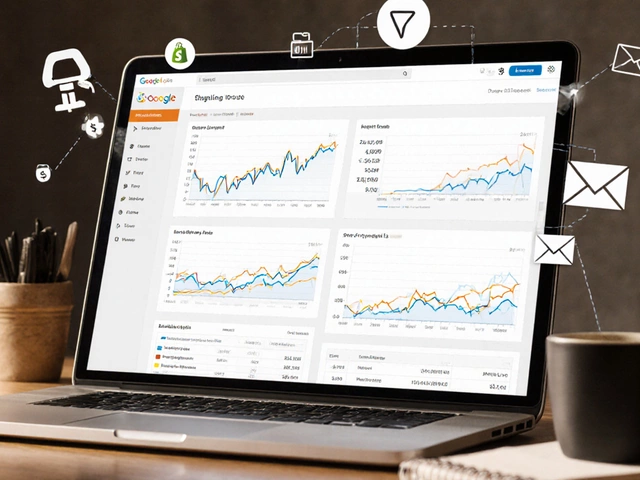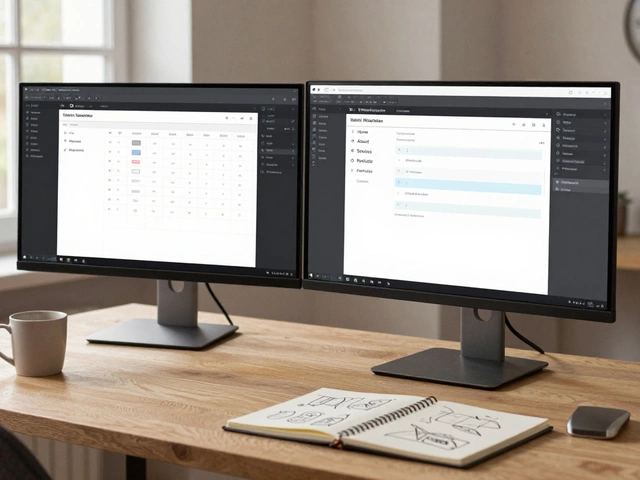Ever wondered what WordPress developers rake in? You’re not alone. The digital landscape is bursting with opportunities for folks who know their way around WordPress, but just how much money is it rolling out?
Honestly, the earnings can swing pretty widely, depending on a bunch of things. Experience, skills, and whether you're freelancing or working full-time can all play a big role. So, let's break down what's impacting those paychecks.
From the get-go, expect to see entry-level developers making less compared to pros who've been coding their way through WordPress themes and plugins for years. However, even starters can earn a decent living if they play their cards right.
WordPress Developer Salaries
So, let’s talk numbers. How much do WordPress developers actually make? Well, it really can vary depending on where you’re at in your career and where you hang your hat geographically.
In the US, the average salary for a WordPress developer can range from $45,000 to $100,000 per year according to some reliable job market sources. Entry-level WordPress developers often start around $40,000. When they're more seasoned, salaries can jump to $90,000 or higher. This translates pretty nicely to other parts of the world too. But if you're freelancing, the sky’s the limit; income will depend on how many clients you juggle and the complexity of the projects you tackle.
Check this out: a steady job with a company tends to provide predictable income, benefits, and job stability. Meanwhile, freelance WordPress developers can charge hourly rates between $25 and $100+, based on expertise. If you're particularly skilled, you might even pull in much more for bespoke customizations and consulting work.
Take a quick glance at some international figures:
| Country | Average Annual Salary |
|---|---|
| USA | $65,000 |
| UK | £35,000 |
| Australia | A$70,000 |
| India | ₹400,000 |
The flexibility in this field is a major bonus, so you can pretty much decide what works best for you. That’s one of the exciting parts about diving into WordPress development—it can fit around your lifestyle and career ambitions.
Factors Affecting Earnings
So, what's causing those salary numbers to jump around for WordPress developers? Well, it mostly boils down to a few key things. Let’s dig into these factors to see how they could tweak your paycheck.
Experience and Skills: One of the biggest game-changers is your expertise. It’s pretty straightforward—the more you're familiar with WordPress's nooks and crannies, like custom themes and complex plugins, the more you can demand in pay. Developers who've flexed their skills for a few years tend to score better salaries.
Geographical Location: Where you set up shop can also shake things up. For instance, developers in tech hubs like San Francisco might snag higher wages due to the high cost of living and demand for techies. Meanwhile, remote work can offer a sweet spot for balancing out cost and income.
Job Role: Are you clocking in as a full-time employee or hustling as a freelancer? Full-timers often enjoy perks like stability and benefits, while freelancers might earn more per project but face income ups and downs.
"Freelancers capitalize on flexibility and choose rates that reflect their expertise," says Jane Doe, a seasoned industry consultant. "However, they must be proactive in maintaining a steady workflow."
Industry Demand: WordPress developers observed a steady demand in industries ranging from e-commerce to media. Being in the right niche can bump your desirability and the dollars you take home.
Let's check out some numbers to paint a clearer picture:
| Experience Level | Average Salary (USD) |
|---|---|
| Entry-level | $40,000 - $60,000 |
| Mid-level | $60,000 - $90,000 |
| Senior-level | $90,000+ |
In essence, knowing what factors influence those earnings can help you strategize and make the most out of your WordPress development career. Keep these in mind as you figure out your path forward!

Freelance vs Full-Time
Jumping into the world of WordPress development brings up a big question: Should you freelance or aim for a full-time gig? Each path has its quirks and quirks, and will shape what your bank account looks like.
Freelancers often enjoy the thrill of picking projects they love and setting their own hours. They're like digital nomads, hustling from anywhere in the world. The catch? Paychecks can be unpredictable. One month you’re ballin', the next you might be scraping by. A solid strategy and network can help smooth out these bumps.
"Freelancers might bring in anywhere from $20,000 to over $100,000 per year, depending on their client list and hustle," notes John Waters, a well-known freelance economy analyst.
On the flip side, a full-time WordPress developer role with a company offers more stability. You know exactly what’s hitting your bank account and when. And hey, you might even snag some cool perks like paid leave and health insurance. But, keep in mind, the 9 to 5 grind isn’t everyone's cup of tea.
Let’s look at some numbers:
| Position | Average Salary (USD) |
|---|---|
| Freelancer (beginner) | $20,000 - $40,000 |
| Freelancer (experienced) | $60,000 - $100,000 |
| Full-Time Developer | $50,000 - $90,000 |
For those on the fence, a suggested approach is to try tinkering with both worlds. Start freelancing to build those crucial skills and networks, which can be super helpful later if you switch to a full-time position. Remember, each has its own rhythm, so choose what syncs best with your career dreams.
Boosting Your Income
If you’re aiming to up your game and make more as a WordPress developer, there are a few ways to give your paycheck a nice nudge. It's all about honing skills and spreading your name in the market.
First off, never stop learning. Sounds cliché, but keeping up with WordPress updates and mastering new plugins keeps you ahead. Dive into advanced themes, custom post types, and hooks. The more tools you master, the more you can offer to clients.
Thinking of going freelance? Building a strong portfolio is crucial. Showcasing your past work, especially any unique or high-profile projects, speaks volumes to potential clients. If you're freelancing, consider specializing in a niche, like e-commerce or SEO optimization on WordPress sites. Clients often pay more for specialized expertise.
Networking also pays off big time. Engage with the WordPress community online—join forums, participate in webinars, and don’t shy away from WordCamps or neighborhood tech meet-ups. It’s not just about learning; it's about getting your name out there.
Here's a quick look at some skills that are highly marketable and can increase your earnings:
- Programming Languages: Know your PHP, CSS, HTML, and JavaScript.
- SEO Skills: Understanding SEO can be a major plus for clients wanting their sites to rank higher.
- Security: Offer services to secure websites, a growing demand in the tech space.
- Responsive Design: With mobile usage increasing, knowing how to make sites look good on any device is key.
Last but not least, consider pricing your projects based on value instead of just the hours you put in. If you create a site that's a game-changer for a business, you deserve a cut that's fair for both you and the client. So, keep refining your craft, stay in the loop, and make your work something worth paying for.





